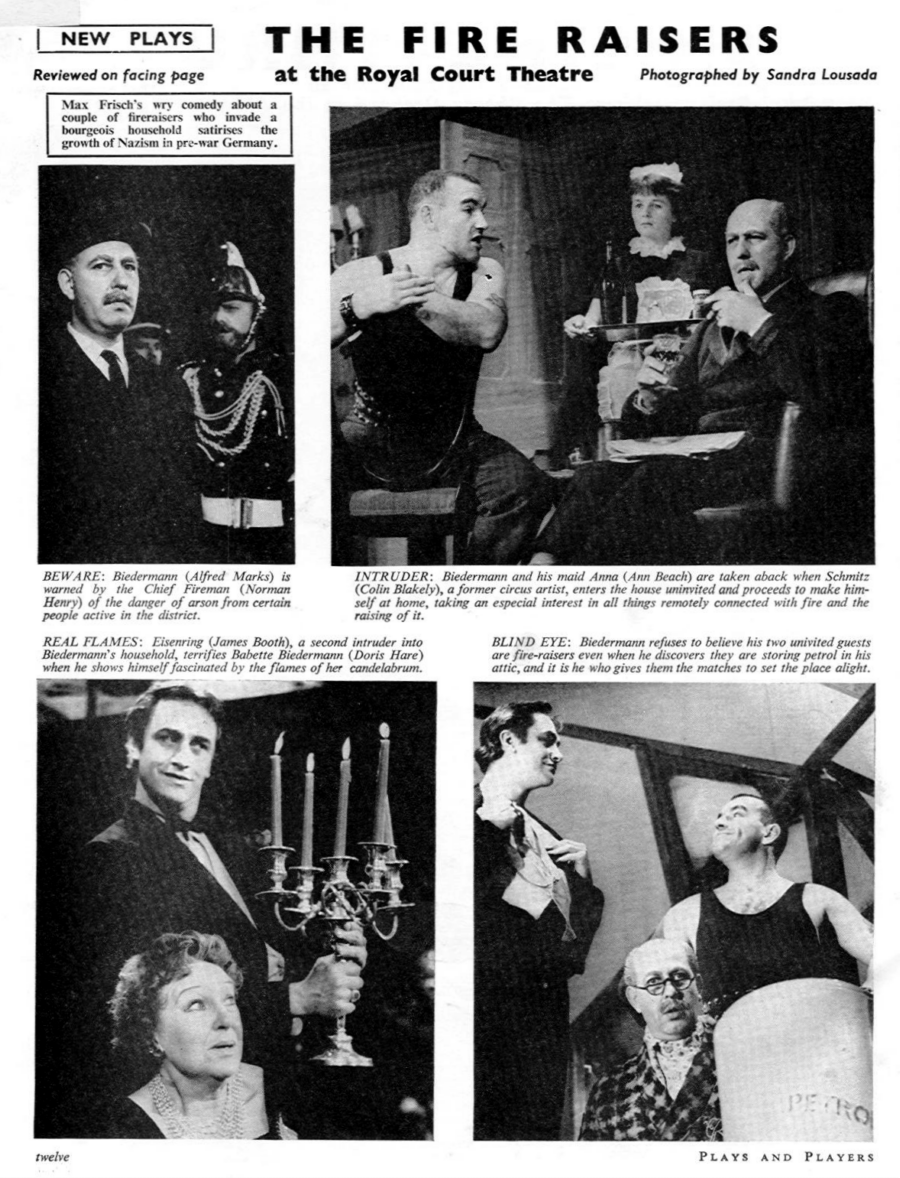
Plays and Players, February 1962: The Fire Raisers

By Max Frisch, in a translation by Michael Bullock. Directed by Lindsay Anderson with setting by Alan Tagg and music composed and arranged by Dudley Moore.
Gottlieb Biedermann, Alfred Marks; Anna, Ann Beach; Schmitz, Colin Blakely; Babette Biedermann, Doris Hare; Eisenring, James Booth; Policeman, Roger Kemp; Widow Knechtling, Catherine Wilmer; Doctor of Philosophy, John Thaw; Chief Fireman, Norman Henry; and Trevor Danby, David Jackson, Dickie Owen, Gordon Rollings and Henry Woolf.
HERR GOTTLIEB BIEDERMANN is an apparently respectable, hard-working prosperous business man in a bourgeois community somewhere in Europe. There has been an epidemic of fire-raising in the town. Suddenly, amid this atmosphere of expectant terror, an ex-Circus strong man named Smitz forces his way into Bidermann's house. He is followed by one Eisenring, equally sinister, equally menacing. Biederman is too afraid to turn them away. With a terrible jocoseness he lets them sleep in the attic. He makes only the feeblest objections when they start to fill the attic with great cans of petrol. He even helps them arrange the fuses, joking all the time with a ghastly bonhomie. The end comes. They burn the house down.
This then is the story of The Fire Raisers, a mixture of grisly humor and bourgeois satire. Seldom have the evils of complacency been more vividly shown. It is an almost perfect evening--almost perfect because it is spoilt only in the last minute, when the holocaust comes. Instead of leaving this as simple fire (which I am sure was the author's intention) the director, Lindsay Anderson, has chosen to portray it as a nuclear explosion. This seems to be an unnecessary personal imposition on a perfectly straightforward piece of writing.
The cast at the Court could not be bettered. As Biedermann, Alfred Marks achieved just the right note of blustering nervousness and stiff-necked incompetence. Colin Blakely, acting the strong man with incredible power, can shiver one's timbers with a single inflection; and as Eisenring James Booth gives us another ashen-pale serpent-like young man. There is another excellent set by Alan Tagg and a delightful chorus of firemen singing Dudley Moore's clever parodies of mid-Victorian music. All in all, a most satisfactory evening.
Peter Carthew